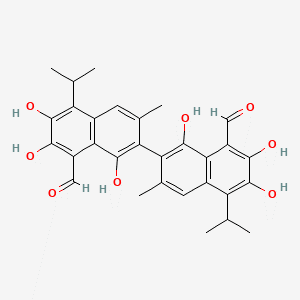The Problem
Cottonseed as Nutrition

Cottonseed, seed of the cotton plant, is a potential sustainable source of protein, which is produced approximately 10 million metric tons globally each year and can fulfil the protein requirement of nearly half a billion people[2]. It is commercially sold as cottonseed oil and cottonseed meal (CSM). Whole cottonseed is an excellent source of energy, fat, fibre, and protein.
Cottonseed is known to contain about 96% of total digestible nutrients. It has high protein (23%), high energy in the form of fat (20%), and crude fibre (24%) on a dry matter basis [3]. As a result, due to its high calorie and fibre content, it may be safely regarded as superior to other frequently available protein supplements.
Comparison of protein content of Cottonseed with famous food sources[4]
Apart from the nutritional benefits, cottonseed oil is also known to lower body inflammation. The unsaturated fats in cottonseed oil help in lowering LDL and increasing HDL in human beings. It improves blood pressure and reduces the risk of heart stroke and diseases [5].
Can we eat cottonseed?
Despite its attractive functional food qualities, the consumption of cotton seeds is severely hindered by the presence of a toxic terpenoid known as gossypol.

Fig: Structure of Gossypol[6]
Gossypol is a polyphenol isolated from the seed, roots, and stem of the cotton plant (Gossypium sp.). This chemical compound, a yellow colored pigment similar to flavonoids, is present in cottonseed oil.
In the plant, it acts as a natural defensive agent against predators, provoking infertility in insects. In most animals, gossypol is known to induce several health hazards such as respiratory distress, impaired weight gain, reproductive disorders, anorexia and apathy upon consumption[7].
Our Solution

In order to solve the problem of gossypol toxicity, we either need to inactivate it or degrade it within the cottonseed meal (CSM) before consumption. Along with this we will make sure that we are not affecting the nutritional content of the cottonseed meal.

To do so, our team has found an enzyme that can degrade gossypol very efficiently. We expressed the enzyme using a Pichia Pastoris expression vector and grew Pichia on crude glycerol, a biodiesel industry waste. By using this expressed enzyme, gossypol will be successfully degraded in CSM, thereby, making it safe for human consumption. The use of industrial biowaste as a source of energy and decreasing the number of bioprocesses, makes our project more efficient and cost-effective.
Project Promotion Video
References
[1]
A skeptical look at popular diets: Vegetarian is healthy if you tread carefully.
Retrieved from Stanford scopeblog
[2] Manoj Kumar, Maharishi Tomar, Sneh Punia, Simona Grasso, Fátima Arrutia, Jairam Choudhary, Surinder Singh, Pooja Verma, Archana Mahapatra, Sharmila Patil, Radha, Sangram Dhumal, Jayashree Potkule, Sujata Saxena, Ryszard Amarowicz, Cottonseed: A sustainable contributor to global protein requirements, Trends in Food Science & Technology, Volume 111, 2021, Pages 100-113, ISSN 0924-2244, https://doi.org/10.1016/j.tifs.2021.02.058. Stanford scopeblog
[3] Jacobs, L., Mullenix, K., & Brown, S. (2019). Whole Cottonseed Use in Beef Cattle Diets. Alabama Cooperative Extension System. Retrieved from Alabama Cooperative Extension System
[4] Cottonseed Flour Nutritional Value And Analysis Serving Size from nutrientoptimiser
[5]
Longhurst, A., (2018). Cottonseed Oil: Uses, Side Effects, and Possible Benefits. Healthline.
Retrieved from
Healthline
[6] National Center for Biotechnology Information (2021). PubChem Compound Summary for CID 3503, Gossypol. Retrieved October 17, 2021 from PubChem.
[7] Ivana Cristina N. Gadelha, Nayanna Brunna S. Fonseca, Silvia Catarina S. Oloris, MarÃlia M. Melo, Benito Soto-Blanco, "Gossypol Toxicity from Cottonseed Products", The Scientific World Journal, vol. 2014, Article ID 231635, 11 pages, 2014. DOI: https://doi.org/10.1155/2014/231635
